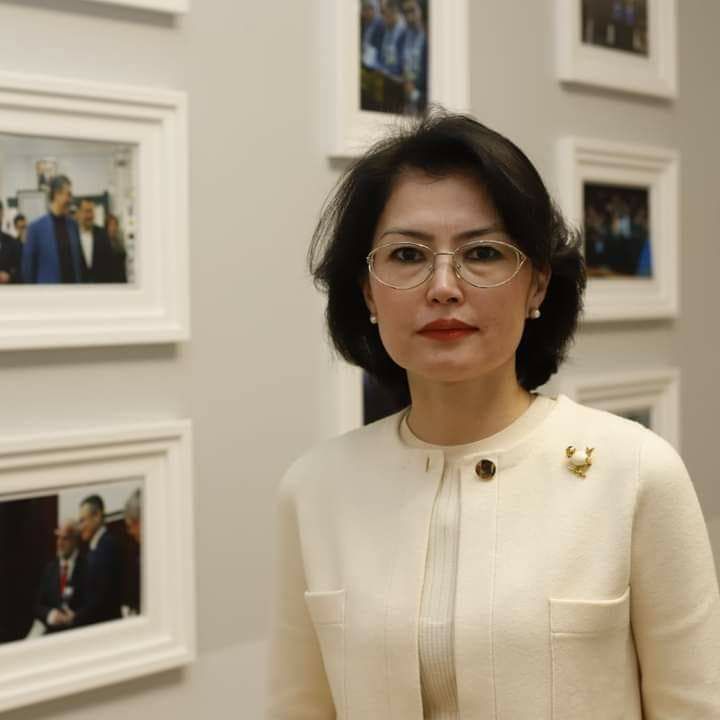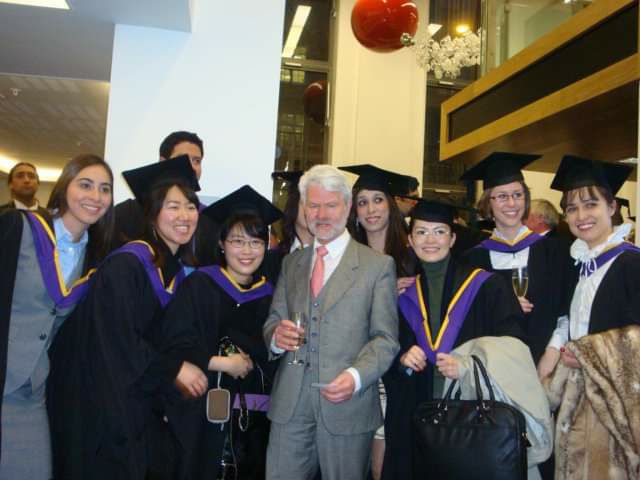Editor’s note: This year marks the 30th anniversary of the Bolashaq International Program, which was established on Nov. 5, 1993. The scholarship covers tuition fees for Kazakh students to study abroad. This article is written by Ainur Karbozova, the Deputy Chairwoman of the Board at Maqsut Narikbayev University, who graduated from London School of Economics and Political Science as a Bolashaq recipient in 2010. Karbozova served as a chair of the Bolashaq Program’s Centre for International Programs in 2019-2022.

It is essential for projects financed by taxpayers’ money to maintain the highest levels of accountability and transparency. This demand became especially prominent during the COVID-19 pandemic when valid concerns and criticisms arose about the future, effectiveness, and return on investment from Bolashaq graduates.
In response, I, along with numerous Bolashaq graduates dedicatedly serving our country, believe that Bolashaq undoubtedly has a bright future. It stands out as an unparalleled program, enabling thousands of young individuals to pursue advanced higher education abroad, thereby fulfilling the economic needs of Kazakhstan.
The program’s uniqueness has not gone unnoticed on the international stage. Renowned higher education organizations, including the British Council and the German Academic Exchange Service (DAAD), have evaluated the Bolashaq program against 11 alternative scholarships. They used three primary evaluation criteria: alignment with priority study programs, comprehensive coverage of educational expenses, and guaranteed employment for graduates upon their return to Kazakhstan. Owing to these strengths, Bolashaq has earned global recognition as the premier international scholarship program.
On Nov. 5, 2023, the Bolashaq Presidential Scholarship marked its 30th anniversary. Over these three decades, the Bolashaq scholarship has been granted to 15,697 citizens of Kazakhstan. As of today, the program boasts around 12,500 graduates.

Ainur Karbozova with her colleagues from the Bolashaq Program’s Centre for International Programs. A photo from Ainur Karbozova’s personal archive.
The Bolashaq Impact Report – 1 offers insights into the program’s effectiveness. A striking 90% of Bolashaq graduates’ employers highlight not just their education and professional qualifications but also their leadership acumen, ethical values, communication prowess, and notably distinct mindset. These graduates are often lauded as change managers, change agents, and game changers.
Currently, about 52% of Bolashaq graduates have ascended to middle and senior management roles. Additionally, 10% have embarked on entrepreneurial journeys, establishing businesses that generate broader employment opportunities for our nation.

Ainur Karbozova at the graduation ceremony at London School of Economics and Political Science.
Zooming in on two socially significant areas: with over 1,000 graduates specializing in healthcare, studies indicate these professionals execute more than 200,000 diverse surgeries annually. Notably, these graduates traverse the nation, disseminating their expertise and mentoring the next generation in their domains. A mere decade ago, such intricate surgeries were nearly unattainable domestically, and only the affluent had the luxury to seek costly medical care overseas. Today, I can assert, without hyperbole, that the Bolashaq graduates have been instrumental, not only in part but predominantly, in saving the lives of thousands of ordinary Kazakh citizens. It is evident that Bolashaq graduates play a significant role in reducing mortality related to health issues in our country.
In the realms of education and science, approximately 1,500 Bolashaq graduates have made their mark. Today, many of them hold esteemed positions such as rectors, vice-rectors, deans, senior teachers, and researchers in our nation’s primary schools and higher education institutions. Furthermore, as heads of various educational organizations, they have been pivotal in elevating the quality of education and science in our country.
Public administration is another domain where Bolashaq graduates shine, playing a decisive role in public sector reforms. A significant one-third of the Presidential Youth Reserve comprises Bolashaq graduates.
I firmly believe that the contributions of Bolashaq graduates should also be assessed through the Impact projects. These initiatives have catalyzed positive, transformative changes that have accelerated Kazakhstan’s development. Such contributions should be at the forefront when appraising the overall effectiveness of the program.
I am confident that the people of Kazakhstan would acknowledge the pivotal role Bolashaq graduates have played in initiating, advancing, and delivering critical national projects. These include esteemed institutions like Nazarbayev University, Nazarbayev Intellectual Schools, Astana International Financial Centre, National Medical Centers, Astana Hub, and Astana IT University. Additionally, their influence extends to leading educational organizations, major oil and gas deposits, construction projects, and attracting foreign investments to key strategic projects. In essence, Bolashaq graduates have emerged as significant contributors to local content development.
Furthermore, through the public and philanthropic endeavors of the Bolashaq Program Alumni Association and the Bolashaq Corporate Foundation, inclusion support offices have been established across all Kazakhstani regions. These initiatives have also facilitated funding for gifted youth to compete at both national and international levels. Notably, over 30 Hollywood films have been translated into Kazakh, delighting Kazakh-speaking children not only in Kazakhstan but also as far afield as Mongolia. Under mentorship initiatives like With Belief in the Future, Bolashaq graduates offer invaluable guidance to high school students, playing a crucial role in helping them navigate and select their future professions.
No matter the domain—whether it’s healthcare, education, human capital development, culture and the arts, public administration, finance, economics, IT, innovation, business process optimization, public and charitable projects, manufacturing, or construction—nationwide initiatives are predominantly proposed and executed by Bolashaq graduates.
My personal mission is to serve my nation and to stand as a beacon of inspiration for the youth and my children.
The author is Ainur Karbozova, the Deputy Chairwoman of the Board at Maqsut Narikbayev University. She is a graduate of the Bolashaq program and holds an MSc in Public Management and Governance from the London School of Economics and Political Science.
